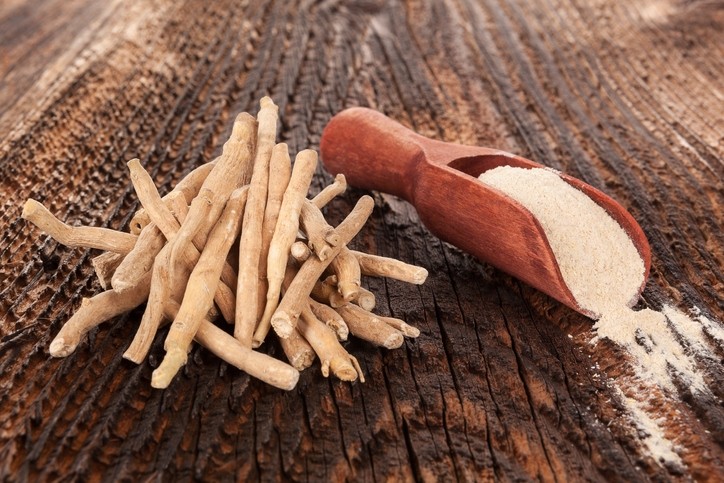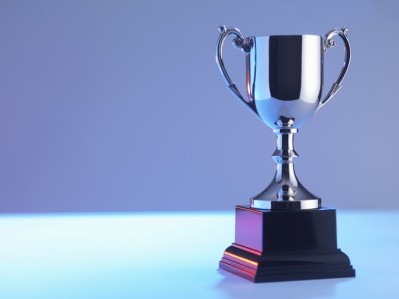Rising research pace, secure supply broadens ashwagandha's playing field in stress management

“Kava is way up there for stress management,” said Chris Kilham, an herbal expert who bills himself as The Medicine Hunter. Kilham has consulted with many herbal products companies over the years and is currently working with the KSM 66 Ashwagandha brand. Kilham spoke with NutraIngredients-USA at the company’s booth at the recent Expo West trade show in Anaheim, CA.
“Kava is way up there for stress management,” Kilham said. “Another big herb has been rhodiola, and ashwagandha, as well.”
Kilham said kava, with its noted relaxation and anxiolytic effects that are marked enough to border on a pharmaceutical strength of action, was the early leader in the field. But the botanical suffered from reports of liver toxicity that industry stakeholders attributed to a few poorly made extracts.
“Kava was burdened with the liver toxicity misinformation,” Kilham said.
Rhodiola has no such health related mark on its record. But as much of the botanical raw material for these supplements is sourced within Russian territory, the middle term supply situation is uncertain.
Ashwagandha sales leave launch pad
That leaves the filed open for ashwagandha, and Kilham said the sky is the limit. Sales of ashwagandha have boomed in recent years.
According to the American Botanical Council’s annual Herb Market Report, sales of ashwagandha sales hit $31.7 million in the mainstream channel in 2020, represeting a 185.2% year over year growth rate. The herb only appeared on ABC’s top-40 list in that channel in 2018, when it ranked No. 34. Now it sits at No. 12, and its sales have quadrupled in that short time. The botanical recorded $13.5 million in sales in the natural channel in that year, according to the ABC report.
On the global scale, a recent report from Data Bridge Market Research forecasts that ashwagandha sales will hit $102 million by 2029 with a CAGR of more than 11% in that time frame.
Ashwagandha (Withania somnifera) is an annual plant native to South Asia that grows best in poor, dry soils. According to a monograph from the American Herbal Pharmacopoeia (AHP), ashwaganda (has a history of use in Ayurvedic medicine that dates back as much as 4,000 years to the teaching of renowned scholar Punarvasu Atreya, and in subsequent works that make up the Ayurvedic tradition. The name of the herb derives from Sanskrit, and means “smells like a horse," which refers to the strong smell of the root which is said to be redolent of horse sweat or urine.
AHP founder and president Roy Upton said his organization is cooperating with the Indian government agency AYUSH to further validate ashwagandha’s scientific and quality underpinnings.
Research interest on the herb has accelerated in the past two decades. Prior to 2000 the botanical was little studied by the kinds of institutions whose research is captured by the PubMed database maintained by the National Institutes of Health. In that year the number of studies found using ‘ashwagandha’ as a search term first broke into double digits, with 20.
Accelerating research
In the years since research has ramped up dramatically. In 2010, 55 studies were registered, and in 2020 that number hit 135. Last year, 165 studies on the botanical were recorded.
Many of those studies have focused on the herb’s broad adaptogenic effects, including anti-inflammatory, neuroprotective, sleep-inducing, and anxiolytic properties. But more recent research has honed in on properties specific to the stress management sphere. Fro example, a systematic review published in 2021 in the journal Nutritional Neuroscience assessed the effects of more than a dozen single plants or phytocompounds on the hypothalamic-pituitary-adrenal (HPA) axis, which plays a central role in the body’s stress response. The Australian researchers concluded that, “the most consistent finding was a morning, cortisol-lowering effect from ashwagandha supplementation.” (Cortisol is a hormone that reduces inflammation, increases blood sugar, and helps the body respond to stress among other physiological functions.)
Ashwagandha has had several proponents in the American market. Sabinsa has been a long time supplier, and Natreon, which was acquired by Kerry in 2021, developed its Sensoril root and leaf extract over the past decade or so.
Long term advocacy
But Kilham said he believes at least some of ashwagandha’s current popularity can be attributed to the market building efforts of Ixoreal, parent company of the KSM-66 brand. Ixoreal is a division of the family owned Baldwa group of companies, which together have more than $320 million in annual sales, and KSM-66 Ashwagandha is the division’s only product.
“If you look at the big botanicals, the ones that a have really broken through had at least one long term advocate. For ginkgo it was Schwabe, Medaus put in decades of research into echinacea and for ashwagandha here has been Ixoreal,” he said.
Kilham said Ixoreal’s vertical integration will be a plus in a time of ever increasing supply uncertainty. The company grows its raw material in Rajasthan, in India’s arid northwest.
“There are many wonderful people who start herbal companies and buy from open markets because they don’t have the capital to buy large farm acreages,” Kilham said.
“Those companies that can control their supply, from what I call seed to satisfaction, those are the companies that will more easily stay afloat in years ahead,” he said.
















